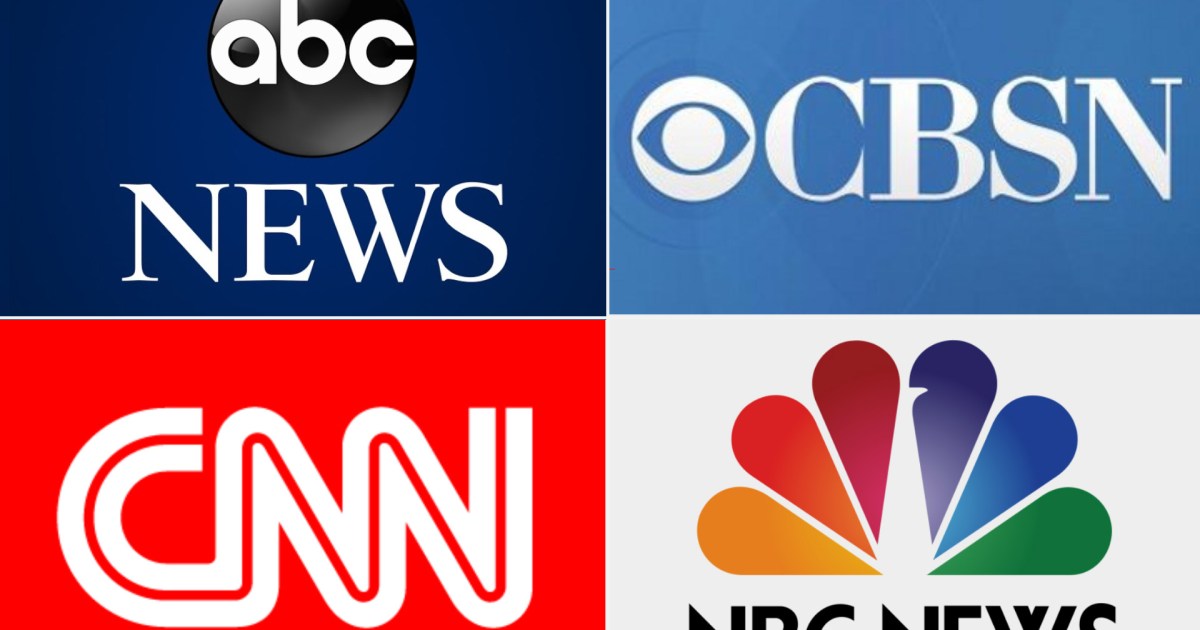The BBC news service is one of the most important and well-known British brands around the world and within the UK.
In the United States, despite the presence of hundreds of American television stations, the state does not have an official television upon which those who wanted to listen to one opinion representing the official voice of America would meet.
American televisions also adopt commercial profit as the main engine behind their existence, and major American companies own all the famous TV stations.
A recent report by the Reuters Institute of Journalism of the University of Oxford indicated that 60% of Americans yearn for a neutral and independent news outlet, and 56% of Americans find the BBC as a trustworthy media.
Although most Americans look to follow neutral news, they are not getting enough of it.
Senator Ben Sassi (a moderate Republican from Nebraska) described how American viewers receive news of fast food in America.
"The way Americans consume and produce news - or whatever it is that passes through to them these days - is driving us crazy," Sassi said.
This led to a decrease in Americans' confidence in the media compared to other developed countries, and 51% of Americans trust widespread local news networks such as ABC, CBS and NBC. NBC), and the percentage drops to 40% in "CNN" and "Fox News".
The question of the absence of an official American television came back to the audience strongly, in light of the growing polarization in the United States, which threatens the very idea of democracy, which was reinforced by the bias of the television screens towards one of the two political parties in an unprecedented way.
Is there government TV?
Yes and no;
There is state television, "PBS", which receives its funding mainly from the federal government, but it does not follow an editorial line through which it reflects the priorities or preferences of the administration controlling the White House or the majority party in Congress, and there is an American government news broadcast that matches Radio B BC, known for short as "NPR".
The central nature of the American state, and the competition between the federal and state governments for powers and powers, resulted in a federal system that abhors political centralization;
Difficulty in establishing the federal government, a television or radio station that represents the voice of the united American state.
Some constitutional jurists translated the text of the First Constitutional Amendment, which prohibits the US government from issuing any laws that limit freedom of speech or the press;
It also means that the federal government cannot interfere with influencing citizens' political preferences and preferences.
Since the 1920s, public broadcasting services began spreading in American cities and states, while television and public broadcasting began half a century ago, following the passage of the Public Broadcasting Act of 1967.
Amid political reforms associated with the civil rights movement at the end of the 1960s, President Lyndon Johnson signed into law the Public Broadcasting Act 1967, which ultimately led to the creation of both PBS and NPR.
Government broadcasters finance their costs from the government budget, at rates ranging from 20%, as in Florida, to 70%, as in the state of Alaska.
Local networks collect donations from people, foundations, associations and companies, and periodically reveal donor lists.
PBS is not considered a news TV like the BBC, because it is primarily a diversified television, and includes high-quality programs for children, arts, sports and documentaries, in addition to a very limited number of news programs that do not exceed two hours per day. "(News Hour), which is currently presented by veteran anchor Judy Woodorff as one of the most important American news programs ever, and broadcast daily between 7 and 8 pm Eastern Time in the United States.
Who is subject to the national media?
Amidst the crowded American media arena, Radio and Public Television is the most trusted and impartial institution in broadcasting news, despite the accusations of bias toward Democrats.
The Public Broadcasting Corporation (CPB) oversees the provision of federal financial support in a manner that does not affect the station's ability to operate independently. The Corporation currently funds 1,041 local public radio stations and more than 365 local public television stations.
The local radio and television network is spread in various states and provinces of the United States, and in some cases the broadcasts are from different universities or local institutions.
In Washington, DC, for example, the National Radio station broadcasts from the American University, and local television broadcasts from the prestigious Howard University.
The US government media differs from others.
PBS and NPR operate as two separate entities in a decentralized manner, each individual entity licensed to one of the various non-profit organizations such as universities, county governments, or state authorities.
The diversity of funding sources provides the ability of government media institutions to withstand the challenges of bias for the US government, and each public media station retains editorial authority and responsibility for selecting, presenting and broadcasting programs.
Each station typically produces approximately 40% of its own programming, including news broadcasts, cultural and entertainment programs, while much of the radio and television programs and materials are sourced directly from independent producers and other public broadcasting stations.
Under the law, 95% of the federal funds received by a public broadcaster are given as grants to local television and radio stations.
Republican candidates in the presidential elections are reiterating the proposal to cancel funding for state media, which is accused of supporting liberal views and ideas close to the Democratic Party;
Therefore, since the birth of the radio and television broadcasting service at the end of the 1960s, government media has been subject to widespread criticism from conservative circles and the Republican Party.
Presidents: Richard Nixon, Ronald Reagan, George Bush Jr., and Donald Trump have made various efforts to abolish or privatize the public broadcasting corporation through federal legislation, and their efforts have not yet succeeded.

